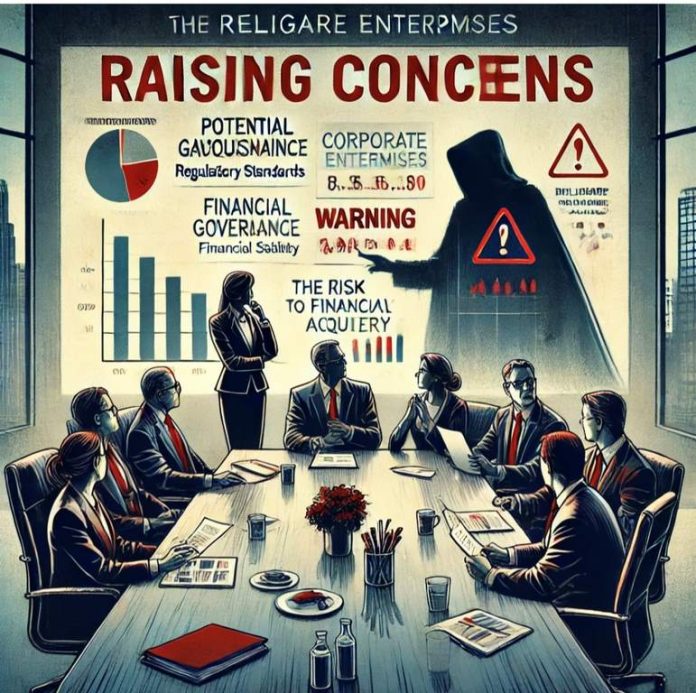INDIA: The potential acquisition of a controlling stake in Religare Enterprises has raised eyebrows in the corporate world. Onboarding a new set of investors does infuse a great deal of goodness, but in this case, the board chaired under the leadership of Dr Rashmi Saluja has raised several alarms. Among the many points raised by the board, the most pertinent one points to the regulatory and corporate governance standards. The board has hinted at broader issues requiring onlookers to relook at the corporate history of the acquirer. Failure to do so would have broader implications for the integrity of India’s financial ecosystem.
Finance has remained an alluring if not profitable area of business for countless years. Finance has been the third most-oldest industry after agriculture and trade. In this age of AI, banking, insurance, or any financial service may seem like an easy proposition, but running a financial business is not for the faint-hearted. Besides fulfilling compliance requirements, and meeting regulatory guidelines, businesses have to be on the vigil for any volatilities and uncertainties. Above all, there is a compelling need to constantly watch out for the top lines and stay ahead of the competition. This explains why many corporate houses excelling in other areas such as manufacturing or trade have perished when it comes to operating a financial services firm.
A great deal of learning can be assimilated from Marx’s popular quip about history repeating itself – “first as a tragedy, second as a farce.” The banking and financial services industry has had its own share of tragedies and even farces. The 2008 financial crisis was one example of a tragedy but there have been countless financial crises with greater impunity. Pre-2008 examples of crises include a Roman crisis in the era of emperor Tiberius; or the great slump of the 15th century; the Tulip mania of the 17th century; or the panic of 1785; or a crisis that shook Australia in 1893; or the 1910s post world-war 1 crisis. And while you are it, let us also pay homage to the countless lives ruined by either the great depression or the economic crisis.
Acknowledging the perils of a mismanaged financial services firm has therefore prompted policy-makers to tighten the policy string from any and every financial services firm. In addition to scrutinizing books and compliance reports, regulators also perform periodic checks on key management personnel to ensure a safe and fool-proof financial services operation. In fact, the larger society generally refrains from a public discussion of serious matters such as vested interests of acquirers, shoddy management, or bad ethics/principles, etc. The reasons could be a risk to life, limb, property, or mental sanity of all degrees. But what the general public murmurs, regulators bring to the discussion and ensure only the clean survive.
For either the RBI or the SEBI to probe an acquisition is not a difficult task. There’s a plethora of information available through the RoC data as well as FIU-IND investigations which can and have brought out some uncomfortable details. For instance, an FIU-IND investigation has repeatedly shown which NBFCs were mismanaged. The classification is something that even the Finance Ministry has acknowledged and appreciated. Analyzing this data leads one to the credible answer of a passionately-discussed hypothesis – are they fit to acquire that stake? The analysis also sheds light on the high-risk business and losses accounted to the acquirer in the past.
The Reserve Bank of India (RBI) has established stringent guidelines to ensure that NBFCs operate under clean and robust corporate governance standards. The RBI under the leadership of a historian also realizes that this is not a trivial matter. In the banking and financial services industry, reputation is paramount. While there may be arguments in favor of the synergies that a Burman-led Religare could bring to the table. These potential benefits must be weighed against the considerable risks posed by their historical mismanagement in the financial sector. Mint-street, meanwhile, too realizes that the reluctance of the board to support the Burmans’ takeover attempt is not an obstructionist stance but rather a protective measure for the long-term stability and credibility of Religare.

